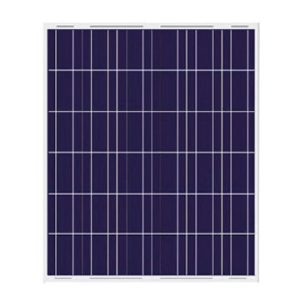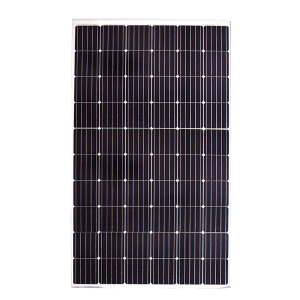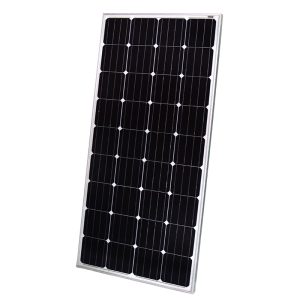Bangladesh has seen a surge in demand for solar panels in recent years, driven by rising electricity costs, frequent power cuts, and increased environmental awareness. 1000-watt solar panel systems have emerged as a popular capacity for residential and commercial establishments looking to harness solar energy for their electricity needs. But how much do these solar panels cost in Bangladesh? Here we analyze the average price range, key factors impacting costs, government incentives, total system expenses beyond just the panels, and overall financial viability of 1000W solar systems in the Bangladesh market.
Average Price Range of 1000W Solar Panels
As per industry estimates, the prevailing price range for 1000-watt solar panels in Bangladesh is 45,000–60,000 BDT (approximately $530–$710 USD). However, buyers need to account for additional system components like batteries, charge controllers, wiring, etc., which can nearly double the overall system cost. Installation charges also have to be factored in. So while a 1000W solar panel itself may cost 50,000 BDT, the total investment for an operational solar system can be well over 100,000 BDT.
Professional solar consultants like Solar Exporters recommend carefully evaluating your specific energy needs and usage patterns before deciding on solar panel capacity and system components. Installing an oversized solar system can increase upfront costs substantially without providing commensurate benefits.
Key Determinants of 1000W Solar Panel Prices
The final price of a 1000W solar panel depends on several technical factors:
- Panel efficiency – More efficient panels can produce the same wattage output using less surface area. They have a higher cost per watt but work out cheaper when total system size and land requirements are compared.
- Manufacturing quality – Top tier brands use higher purity silicon, robotic assembly, stringent quality control etc. This improves panel efficiency, durability and power output stability. Their prices are usually 20-30% higher than cheaper panels.
- Panel certifications – Reputed manufacturers get their solar panels tested and certified by international labs like TUV Rheinland, UL, and JET. Such certification ensures the panels meet rigorous quality and safety standards.
- Panel type – Monocrystalline silicon panels are the most efficient but also costlier than polycrystalline and thin film panels for the same wattage. Amorphous thin film panels are cheapest but have much lower efficiency than crystalline silicon panels.
- Scale of production – Solar panels made in bulk large-scale factories can benefit from economies of scale and better absorption of fixed costs. This allows bigger manufacturers to price their panels lower.
In addition to the panel itself, the associated components like batteries, charge controllers, inverters etc. also impact overall system costs. Careful design optimization is needed to ensure every system component is properly matched and not oversized.
Government Incentives Reduce Effective Prices
While the upfront cost of solar panels and associated systems may seem daunting, the government of Bangladesh does provide certain financial incentives to promote the adoption of renewable energy. These include:
- Tax exemptions – All solar panel equipment and accessories are exempt from VAT, import duties, and income taxes. This reduces prices by 15-20%.
- Net metering – Solar system owners can sell surplus power back to the grid through net metering. This provides an additional revenue stream.
- Low-interest financing – Banks and NBFIs provide loans at 6-9% interest rates for installing solar panels, enabling easier upfront purchase.
Reputed solar consultants like Solar Exporters can advise clients on navigating the paperwork for applicable subsidies and incentives. This further lowers the effective price of solar systems.
Key Applications of 1000W Solar Systems
While the most common application of 1000W solar panels is for residential roof-top systems, they can also serve other productive applications:
- Solar water pumps for irrigation replace polluting diesel pumps and offer a reliable water supply. 1000W solar pump systems are gaining popularity amongst rural farmers.
- Telecom towers in remote locations depend on reliable power. 1000W solar systems, backed by battery banks, offer a cost-effective and low-maintenance power solution instead of diesel generators.
- Commercial establishments like factories, offices, and hotels can meet their daytime electricity needs with grid-tied 1000W solar panel systems and save on monthly electricity bills.
- 1000W solar roof-top systems allow urban households to become partially or fully self-sufficient for electricity. Even grid-connected systems help reduce energy bills.
Solar experts can help determine the right system size and specifications based on the intended application. This ensures optimal utilization of the generated solar power.
Solar Energy Potential and Viability in Bangladesh
Bangladesh has favorable solar irradiation, with most regions receiving daily average solar insulation of 4–6.5 kWh/sqm. This is on par with major solar markets like India and Thailand. Solar energy is thus a dependable renewable resource for meeting a portion of the country’s electricity requirements.
Moreover, with grid electricity tariffs being relatively high in Bangladesh, the levelized cost of solar power is becoming increasingly competitive compared to residential and commercial utility rates. Solar power costs are projected to decline going forward as global panel prices continue their downward trend.
The main challenge with setting up large solar farms is the paucity of free land, given Bangladesh’s high population density. Hence, rooftop solar systems and solar irrigation pumps are likely to be the predominant near-term applications rather than utility-scale solar parks.
Nonetheless, solar energy holds great promise for helping Bangladesh meet its sustainable development goals and climate change commitments under the Paris Accord. The renewable energy policy already aims for 10% of total generation from solar and wind resources by 2030.
Final Recommendations
For any potential solar customer in Bangladesh looking at 1000W solar panel systems, conducting due diligence is essential before making the capital investment.
- Realistically estimate your electrical load requirements. Avoid oversizing the system.
- Select panels are certified by international testing labs for quality assurance.
- Compare multiple quotes from solar contractors before choosing one.
- Confirm the details of applicable government incentives in writing.
- Insist on branded components like inverters and batteries with warranties.
- Check for certification and training for the installation team.
This ensures your 1000-watt solar system investment provides maximum financial benefits for your establishment.
With prudent design optimization and quality component selection, 1000-watt solar panels (around 50,000 BDT) can serve as a sustainable and cost-effective power source for many applications in Bangladesh. But professional consultation is key to ensuring correct system sizing, minimizing losses, and tapping available subsidies. Reputed solar specialists like Solar Exporters can offer the requisite guidance.



